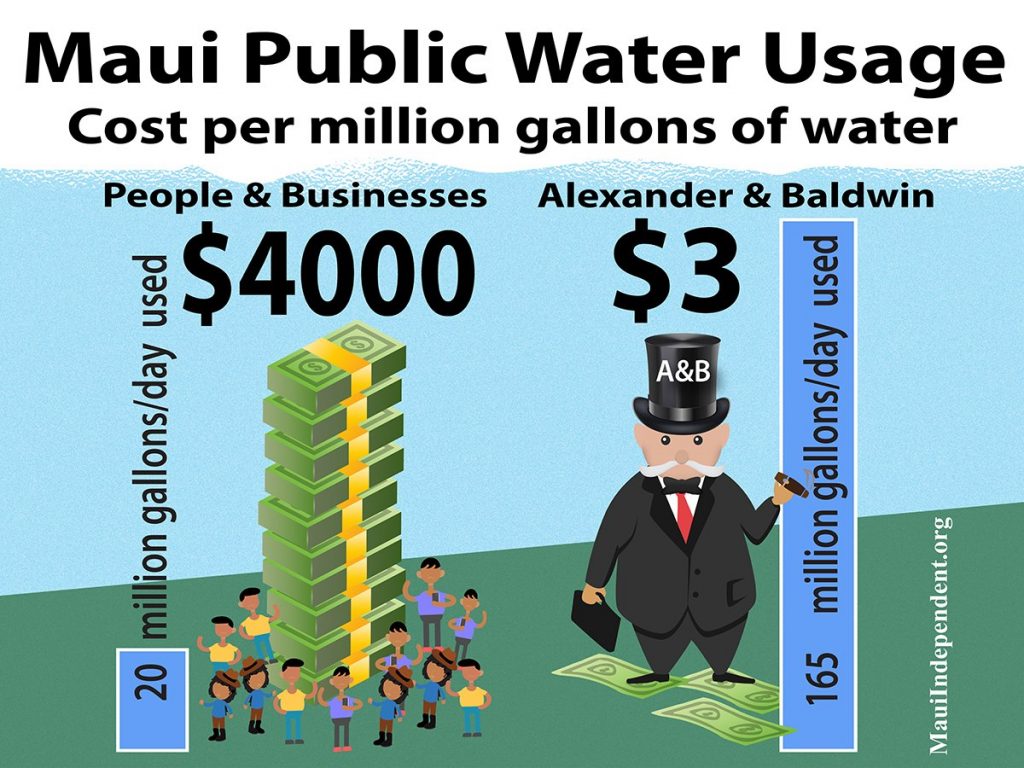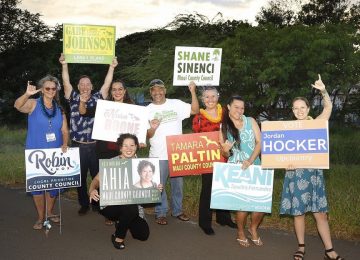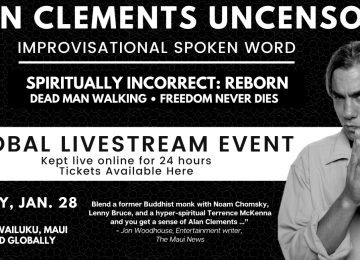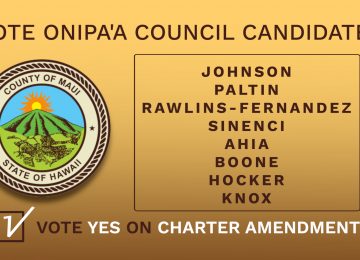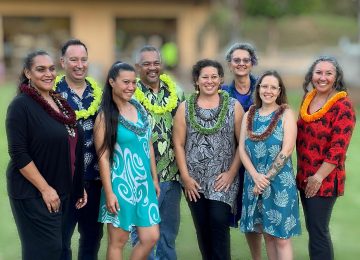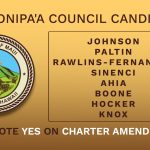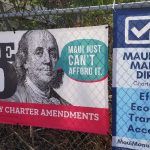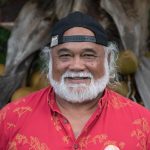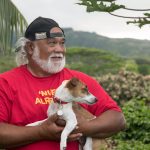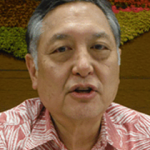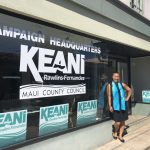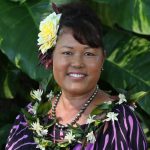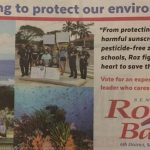With the historic November 2022 passage of Charter Amendment 12, establishing the East Maui Community Water Authority, there is hope, for the first time in 145 years, that the people of Maui will finally gain control over the island’s largest public water source.
“The water leases are up for grabs, and the DLNR (Department of Land and Natural Resources), is preparing an appraisal for water uses,” said Maui County Council member Keani Rawlins-Fernandez. “This is the first time in history that they have done an appraisal on the value of this water in order to prepare for a public auction.”
Most of Maui’s fresh water has been controlled by the Alexander and Baldwin (“A&B”) company since it completed a massive 17 mile aqueduct in 1878 that carried water from the rainy region of East Maui to the plantations in the east. As the Maui Independent revealed in this startling expose six years ago, A&B consumed more than 80% of all public water used in Maui for more than a century. During the final field-burning years of Maui’s massive sugar plantations, the state charged A&B, the largest public company in Hawai’i, just $3 per million gallons of water, while charging Maui’s small farmers, indigenous people and homeowners $4,000 for the same million gallons.
The charter amendment victory followed a contentious race. Eight progressive candidates, united as Onipa’a 2022, ran on a platform focused on protecting the island’s fragile resources. They faced off against a group of far better funded corporation-friendly candidates seeking to turn back the clock to the days when developers and agrochemical companies controlled our county government.
The Maui Independent endorsed both charter amendment 12 and the Onipa’a slate. We produced this endorsement video with narration and scripting assistance by former council member and native Hawai’ian farmer and water protector Alika Atay. The video, which was financed with the support of Hale Akua organic farm owner and activist Lori Grace, was viewed more than 80,000 times by Maui residents over the age of 18.
Charter Amendment 12 passed by a three-to-one margin, with 33,350 yes votes to 11,373 no votes. This resounding victory makes clear that the people of Maui’s want an ethical, transparent, and sustainable management system for the island’s water supply.
The new East Maui Community Water Authority will establish local water boards drawn from community members. Rather than the mayor, these local boards will be responsible for hiring the director in charge of the water authority. Councilmember Shane M. Sinenci, who ran and won on the ‘Onipa’a ticket, has said that the authority is especially concerned with the Nāhiku, Keʻanae, Honomanū and Huelo license areas. In December the Council began accepting applications for members of the powerful new board, a process that is ongoing.
“I’m hopeful that the people have an opportunity to participate in the direction of the use of water,” said Alika Atay. “In the past, people didn’t have a say. So this new Water Authority allows We, people, to have participation. It gives people an opportunity to be at the table.”
For more than a century, Alexander & Baldwin has been allowed to divert streams and consequently harm the livelihoods of farmers trying to grow kalo (taro) in East Maui. With healthy streams often reduced to trickles, the Sierra Club of Hawai‘i denounced the impact on traditional practices as a form of cultural genocide and ecological destruction.
“These diversions are stripping our people of our cultural right,” announced OHA Maui Trustee Carmen Hulu Lindsey.
A&B closed its sprawling 32,000 acre sugar plantation in 2016. Despite the closing of the plantation and the fact that, as Maui’s Sierra Club has reported, “documents submitted by A&B indicate there are 132 million gallons per day available from their existing private sources,” A&B began a duplicitously complex process to win approval of a 30-year extension of most of their massive water diversions.
Because A&B owns the ditches that divert hundreds of streams across East Maui, the company is pursuing a water auction process in which it will be the only viable bidder.
Cleverly co-opting the Hawaiian words mahi, meaning “to cultivate,” and pono, meaning “righteousness” or “goodness,” under the company name Mahi Pono, a Canadian pension fund in 2018, bought 56,000 of acres of former sugar plantation land and the East Maui watershed from A&B for $262 million. The sale was based on access to cheap water, and the company began immediately lobbying lawmakers to secure water rights.
“For over a hundred years, the plantation has been diverting water out of all of our East Maui streams,” Shane M. Sinenci reported at an ‘Onipa’a 2022 forum last year. While local farmers now pay more than a dollar per 1,000 gallons to water their crops, Mahi Pono still pays only 6 cents for 1,000 gallons to irrigate its land.
Decades before Alexander & Baldwin grabbed rights to East Maui’s water in the late 19th century and a Canadian pension fund subsequently acquired those lucrative rights after the collapse of Maui’s last sugar plantation, Hawaii’s royalty had attempted to preserve access to this vital resource for all.
In 1839, King Kamehameha III issued the “Respecting Water for Irrigation,” law to halt the diversion of water by those who were already taking more than their fair share, noted Native Hawaiian activist Lurline Wailana McGregor in Ka Pili Kai magazine. “The law directed that water would be equally distributed, assuring it would be kept available for the common good. Even after Kamehameha III enacted the Mahele, which paved the way for the sale and private ownership of land, the Kuleana Act of 1850 guaranteed that kuleana, or tenant landowners, would always have access to water to be able to continue farming their lands.”
The lure of sugar profits prompted descendants of missionary families to pressure the Hawaiian government into authorizing the use of government waters for their lands, leading to companies like Alexander & Baldwin controlling water from East Maui streams – Maui’s largest public water source.
“With the introduction of sugar, Hawai‘i became an American industrial colony devoted to producing sugarcane for the western US market,” noted anthropologist Carol MacLennan in “Sovereign Sugar: ‘Industry and Environment in Hawai‘i.”
A pound of sugar required 500 gallons of water to produce it. One million gallons were required per day to irrigate 100 acres. At one point, Maui’s Hawaiian Commercial & Sugar Company was daily utilizing more water than the entire population of Oahu.
Despite the fact that our water is legally defined as a public trust – determined by the Hawaii Supreme Court – Maui’s primary water system is still controlled by Alexander & Baldwin, which partnered with Mahi Pono to seek a 30-year lease from the State to divert up to 85 million gallons of water per day to his vast agricultural land holdings.
With Maui voters passing the charter amendment, the Water Authority will now pursue the feasibility of acquiring the long-term water lease agreements for the Nāhiku, Ke‘anae, Honomanū, and Huelo License Areas and enter into an intergovernmental agreement to provide a long-term reliable supply of water for domestic and agricultural needs. It would also manage water resources in a competent, fiscally responsible, and transparent manner, as mandated by the State of Hawai‘i Constitution and public trust doctrine.
“The mayor could start negotiating what that agreement would look like, and prevent Mahi Pono from getting the water leases,” said County Council member Keani Rawlins-Fernandez. “You control the water, you control development, you control profiteering.”
Alika Atay is cautiously optimistic about what happens next to Maui’s water. “When politically powerful rich people stand to lose political power and financial position,” he said, “you need to watch and see what their moves are going to be. The reality for me is for everyone to accept that the plantation era should no longer be in existence.”



